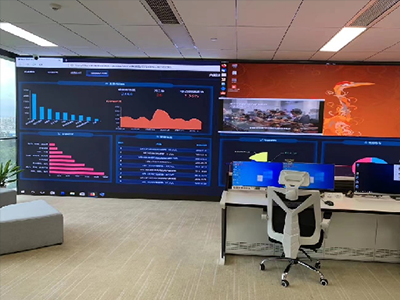ERP系统 & MES 生产管理系统
10万用户实施案例,ERP 系统实现微信、销售、库存、生产、财务、人资、办公等一体化管理
Understanding the Basics of Search Engine Optimization (SEO)
In the digital age, mastering Search Engine Optimization (SEO) is crucial for enhancing online visibility and driving organic traffic to websites. SEO encompasses a range of strategies aimed at improving a site’s ranking in search engine results pages (SERPs). This article delves into the fundamentals of SEO, exploring key techniques and best practices to help you navigate this dynamic field effectively.
The Importance of Keyword Research
Central to any successful SEO strategy is thorough keyword research. Keywords are the phrases users type into search engines when looking for information. By identifying relevant keywords with high search volumes and optimizing content around them, websites can attract targeted traffic. Tools like Google Keyword Planner and SEMrush aid in discovering valuable keywords for your niche.
Optimizing On-Page Elements
On-page SEO involves optimizing individual web pages to rank higher and earn more relevant traffic. Key elements include:
– Title Tags and Meta Descriptions: Crafting compelling title tags (60 characters) and meta descriptions (160 characters) that include primary keywords.
– Header Tags (H1, H2, H3): Structuring content with headers to improve readability and keyword emphasis.
– Optimized Content: Creating high-quality, informative content that satisfies user intent and incorporates relevant keywords naturally.
Mastering Off-Page SEO Strategies
Off-page SEO focuses on improving a website’s authority and relevance through external factors such as backlinks and social signals. Effective techniques include:
– Link Building: Acquiring quality backlinks from authoritative sites to boost credibility.
– Social Media Engagement: Leveraging social platforms to amplify content reach and engagement.
– Online Reviews: Encouraging positive reviews and citations to enhance reputation and trustworthiness.
Technical SEO Fundamentals
Technical SEO ensures that a website meets the technical requirements of modern search engines. Vital aspects include:
– Site Speed Optimization: Enhancing loading times to reduce bounce rates and improve user experience.
– Mobile Friendliness: Ensuring websites are responsive and accessible on mobile devices.
– Crawlability and Indexability: Facilitating search engine bots’ ability to crawl and index web pages effectively.
Measuring Success with Analytics
Tracking and analyzing SEO performance is critical for refining strategies and achieving sustainable growth. Key metrics to monitor include:
– Organic Traffic: Evaluating the volume and quality of traffic generated from search engines.
– Keyword Rankings: Monitoring positions of target keywords in SERPs over time.
– Conversion Rates: Assessing how well organic traffic converts into desired actions (e.g., sales, sign-ups).
Conclusion: Driving Sustainable Growth Through SEO
By implementing a comprehensive Google SEO strategy that encompasses keyword research, on-page optimizations, off-page efforts, technical enhancements, and continuous performance analysis, websites can enhance visibility, attract qualified traffic, and achieve long-term success in the competitive digital landscape. Embrace SEO as a dynamic discipline that evolves with search engine algorithms and consumer behaviors to stay ahead in the online marketplace.












